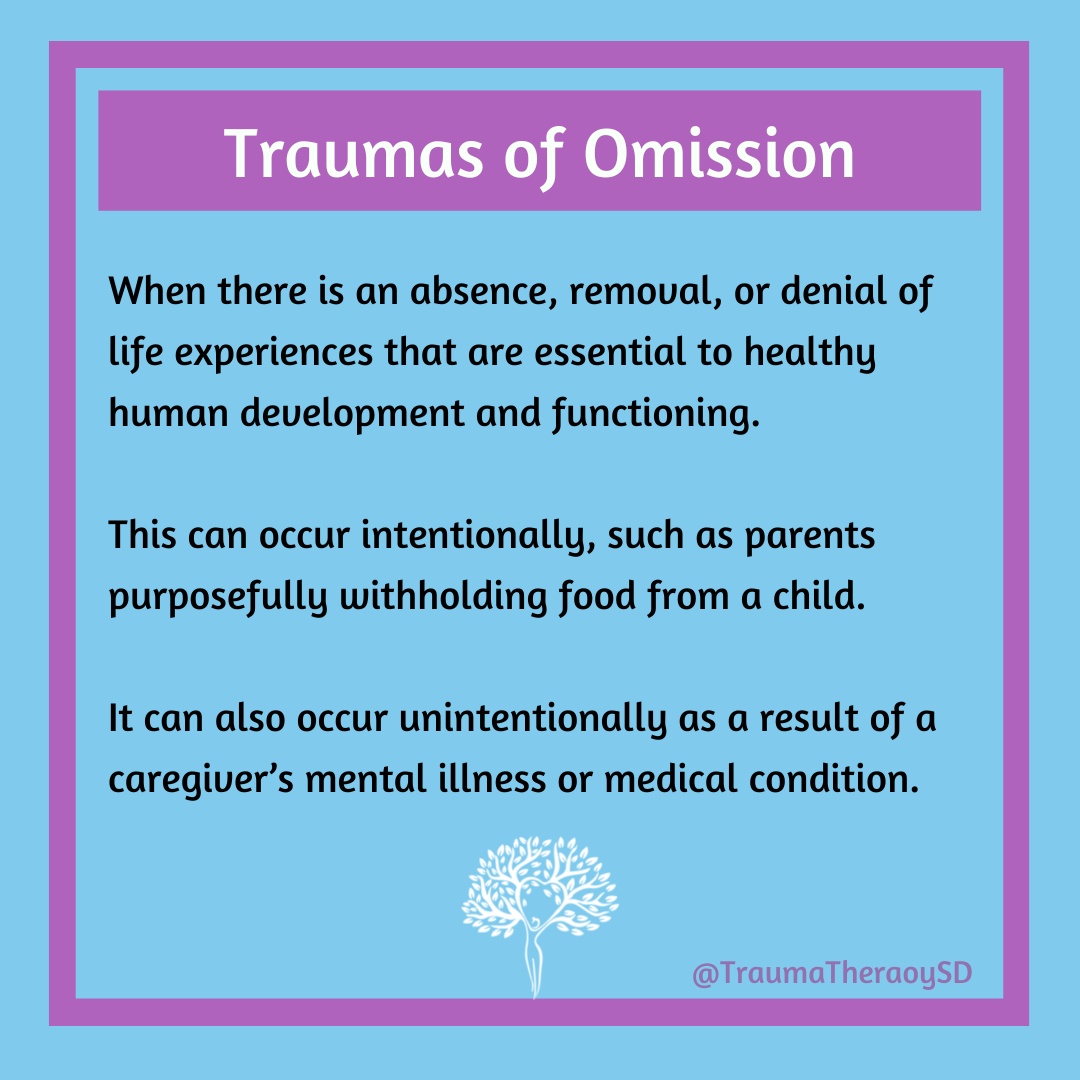Trauma of Omission

Traumas of omission are when there is an absence, removal, or denial of life experiences that are essential to healthy human development and functioning. Neglect is a common example of this type of experience.
This type of trauma can occur intentionally, such as parents purposefully withholding food from a child, when they withhold love and affection unless the child is behaving as their assigned sex, when love and attention is withheld unless the child gets straight A’s in school.
It can also occur unintentionally as a result of a caregiver’s mental illness, medical condition, absence due to incarceration or illness, cognitive impairment, or substance abuse.
Regardless of whether it is intentional or not, it is still traumatic for the child and will often leave scars and unhealthy adaptations in its wake.
One particularly toxic result of traumas of omission is that because they are not active or visible events, on-lookers and even the child will often not see what they are experiencing as traumatic. This can leave survivors in adulthood confused by their struggles and unable to point a finger at an event as a causative factor.
So many of my clients struggle with this, they often blame themselves, deciding they were simply an unhappy child, that they are stupid, that their problems are due to chemical imbalances, or moral failings that they have.
A huge part of healing is learning that there are reasons they feel this way, or lake certain skills. It is important to acknowledge that they were not given all the things they needed to fully flourish and develop as children.
That there is not something inherently wrong with them is revolutionary to understand, because they need to learn that they are worthy of love, even if their caregivers were unable to unwilling to give it to them.
If this is your experience, I see you. You are not alone and it was not your fault.










